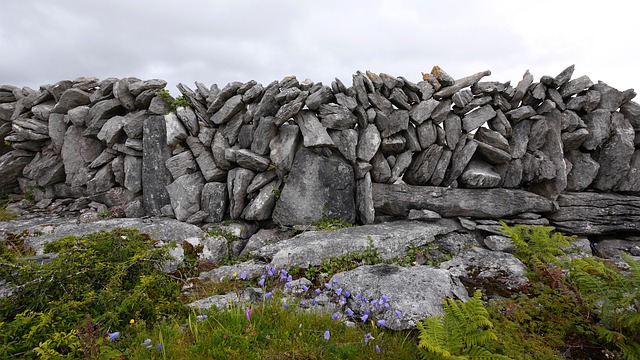We take so much for granted – that we can breathe, walk, talk, see, and hear. Deprivation makes us aware how privileged we are to have these functions and other functions such as choosing what we want to eat, achieving basic elimination functions with ease or being able to write or key (not encumbered by arthritic pain and distortion). The recent Reversing Mast Cell Activation and Histamine Intolerance Summit 2.0 brought home the stark realities of how Mast Cell Activation Syndrome (MCAS) and/or histamine intolerance can impact the quality of our life.
As I listened to various expert speakers who themselves had experienced these conditions, I became more aware of what I do have in terms of quality of life and daily functions. Some of the speakers had periods when they were super-sensitive to smells (such as the perfume of their daughter), unable to eat a wide range of foods because of allergies) or were sensitive to mold in their homes. Others spoke of the symptoms of histamine intolerance and the impact this had on their daily life and their capacity to choose what they would like to eat.
Hope and social support
Parental and social support build hope and agency and enable people with chronic illness or disability to rise above their health challenges and achieve a successful recovery, often beyond peoples’ wildest dreams.
Alexa Leary’s story – from tragedy to triumph
The recovery story of Alexa Leary, Australian Paralympic Swimmer destined for Paris 2024 Olympic Games, is a hugely inspiring account of how parental support and social support have helped her to achieve her goals. Three years ago Alexa had a very serious accident on her bike as a world-class triathlete – causing traumatic brain injury and multiple other significant injuries. She was not expected to live, and, even if she did survive, she was not expected to be able to talk or walk. Alexa’s parents set aside their own lives and spent six months by her bedside in hospital to support her recovery.
Alexa’s rehabilitation efforts are starkly illustrated in the video story, Triumph Over Tragedy. Her incredible sporting accomplishments since the accident reinforces the value of the social support she received from organisations such as the global Pho3nix Foundation, dedicated to helping young people through sport and activity to develop a “sense of purpose, focus and possibility”. Alexa was a participant in their Athlete Program designed to enable underfunded, aspiring Paralympics and Olympic athletes to compete in the Olympic Games. When sharing her story of recovery through radio, television and social media, Alexa emphasised the critical role music played in her life and recovery.
Specialised Support through ADDA
Duane Gordon, President of Attention Deficit Disorder Association (ADDA), elaborates on the benefits of social support and shares multiple stories of how ADDA’s many support groups have facilitated the recovery of its members. Tom, an accomplished engineer, experienced overwhelm in everyday tasks such as shopping but was able to gain support and ADHD-friendly strategies through ADDA’s Healthy Habits and ADHD Brain Group. People with ADHD typically experience relationship difficulties but ADDA’s support group Loving and Living with ADHD: Partners Connecting helped Mark and his partner to rise above the challenges of this condition and strengthen their relationship. ADDA’s support group, ADHD @ Work> Survive and Thrive Support Group, helped James recover from the loss of his job caused by ADHD challenges such as confusion, meeting deadlines and remembering tasks.
Reflection
I was recently diagnosed with early stage, normal tension Glaucoma which has reduced my peripheral vision. I am undertaking a series of tests to determine what the cause is and what kind of treatment is required. The diagnosis has forced me to face the prospect of increased loss of sight, retraction of my driver’s licence and loss of the associated independence. The social support provided by the Creative Meetups, sponsored by the Health Story Collaborative, is particularly critical at this point in time.
I wrote the following poem as a way of reflecting on my present circumstances with the possibility of increased loss of vision:
Losing Sight
Sight lighting my way,
expanding my horizons,
disclosing people and cultures,
revealing nature’s beauty,
enabling enjoyable activity.
Playing a game of tennis,
writing a book,
driving a car,
watching a video,
reading a book,
creating a poem,
developing a blog.
Encroaching blackness,
moving in from the edges.
Losing sight a real prospect.
Rescinding of independence.
Storing recollections for future reference.
A long-playing internal videotape,
of my best tennis shots,
played over the years.
Now categorised by tennis stroke –
forehand, backhand, volley, serve and smash.
A rich palette of memories of nature’s beauty –
blue and white, purple and brown,
red and orange, yellow and green,
grey and black.
Moving from sight to sound,
from reading to listening,
from writing to recording,
from driving to walking.
Feeling my way.
Testing to understand.
Exploring my options.
Appreciating what I do have – while I have it.
As we grow in mindfulness through reflection, meditation and time spent in nature, we can increase our appreciation and gratitude, fortify our hope and strengthen our resilience.
______________________________________
By Ron Passfield – Copyright (Creative Commons license, Attribution–Non Commercial–No Derivatives)
Disclosure: If you purchase a product through this site, I may earn a commission which will help to pay for the site, the associated Meetup group and the resources to support the blog.


